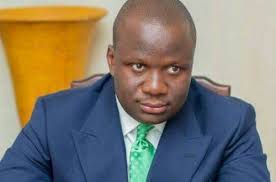
The Minister of Lands and Natural Resources, Samuel Abu Jinapor, has refuted claims that the current government is issuing an excessive number of mining licenses. He clarified that he has faced criticism for not approving enough licenses to meet the industry’s needs.
In a recent media interview, Mr. Jinapor addressed allegations that over 1,400 licenses have been granted since late 2022. “First of all, that is false. I can provide the data,” he stated. He explained that the licensing process is thorough, requiring multiple signatures to maintain regulatory standards. “To approve one small-scale mining application, the minister must secure six signatures. The process itself is cumbersome,” he added.
Mr. Jinapor acknowledged that some industry players have criticized the slow approval process, arguing that it has hindered the growth of the small-scale mining sector. “That has been my biggest headache,” he admitted, referring to the delays in granting licenses.
He emphasized that issuing licenses does not equate to endorsing illegal mining, or “galamsey,” saying, “Even if a license is granted, if the regulatory agency doesn’t monitor how the mining is conducted, it can still lead to galamsey.” He highlighted the importance of formalizing the sector through licensing, as it enables legal operations within a regulated framework.
Recognizing the ongoing issues of illegal mining, particularly in forest reserves, Mr. Jinapor reaffirmed the government’s commitment to addressing these challenges through better regulation and collaboration with stakeholders. He noted that legal mining operations are also required to restore any environmental damage they cause.
Mr. Jinapor called for continued dialogue between civil society groups, industry players, and the government to ensure sustainable mining practices in Ghana. “We need everyone’s support,” he said. He reiterated the government’s commitment to responsibly managing the country’s mineral resources while promoting lawful mining activities.
Story by: Aaron Okraku



